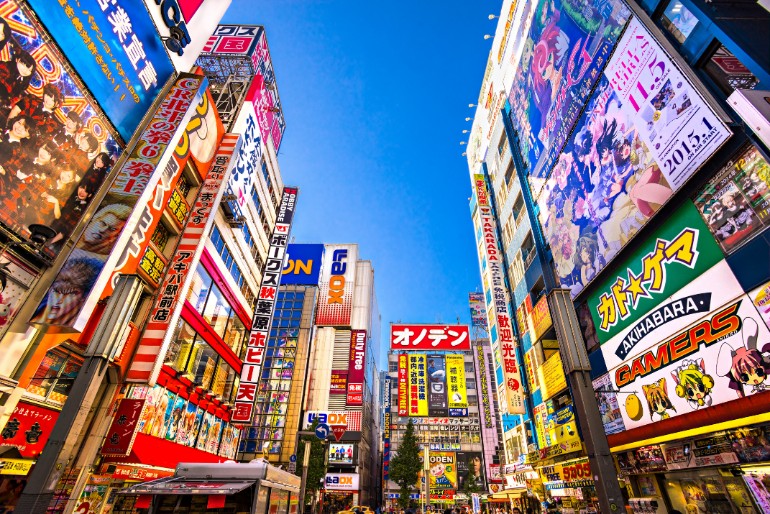Globalization has become the ultimate goal of businesses worldwide. Where companies are expanding their reach to diverse markets, Japanese vendors are also taking advantage of the opportunity and tapping into the international markets. Although Japan itself is a significant market with strong sectors including manufacturing, technology, and automotive, the growing demand for Japanese products in global markets necessitates connecting with diverse audiences.
However, Japanese is a complex language that is hardly ever used outside of Japan. It is essential to offer services in the native language while expanding internationally, especially in nations like the US, Canada, and the UK. With the availability of Japanese to English translation services, Japanese brands no longer face language restrictions.
Contents
The Globalization of Japanese Brands
Japan is a highly developed country. Its industries are mature and have high production power, which means that there is limited room for growth within the domestic market. On the basis of this, Japanese businesses are searching for markets with tremendous potential. As a result of their quest, they found English-speaking regions, especially the U.S., where Japanese products are in high demand and the population has significant purchasing power.
Therefore, for Japanese investors who are looking for diverse marketplaces, entering English-speaking regions is a strategic way to reach 17% of the world’s population and tap into broader global opportunities. Though the Japanese usually do not have a grip on the English language, they use translation as a strategic tool for connecting and communicating with the audience.
Japanese to English Translation Services: A Key to Market Entry
Breaking Language Barriers
Doing business in a new market requires developing a strong connection with the audience, letting them know about your presence, and righteously offering your products. Can you do this without effectively communicating with them? No, right? But how would you communicate with them without speaking their language? Translation takes this tension away from you, allowing you to adapt your marketing materials, websites, customer services, products, and services in your audience’s local language.
Cultural Sensitivity and Localization
Only translation isn’t enough. Building a strong and trustful relationship with customers requires taking care of their cultural references, idiomatic expressions, and local communication styles. It is crucial to understand that Japanese companies’ things that work perfectly in Japan might not resonate in other markets. This requires content localization, including symbols, colors, themes, graphics, UI, and other elements included that may have different meanings across cultures.
Customer Trust and Credibility
Developing a brand image is extremely difficult, particularly in a global marketplace. A brand shows respect and awareness of local customs when its products and marketing materials align with the values and culture of its target market. Customers who speak English are more inclined to relate to companies that are friendly, use their language, and share their cultural values. Gaining the trust of your customers will therefore improve the reputation and image of your brand.
The Role of Professional Translation in Expanding Global Reach
Why Machine Translation isn’t Enough
AI, or machine translation, plays a significant role in enhancing the efficiency of translation providers. However, depending alone on MT can result in compromised quality of translation. These tools are based on datasets, which means they are unable to support cultural nuances and idiomatic expressions. Professional translators proofread and edit the machine-translated content to adapt it according to the local references and cultural nuances of the target audience.
Brand Consistency Across Languages
Translating your brand’s message to a diverse audience even with the same language sets, brings in the chances of an inconsistent voice. Professional translators ensure that your message is conveyed to your target audience with the intended meaning intact.
Transcreation
Finding a suitable word or term in the target language becomes a headache sometimes. Just in case, when translation doesn’t work, transcription steps ahead as a problem solver. It is usually used for changing a marketing slogan or tagline to better connect with local sensibilities.
How Translation Helps Japanese Brands Target Specific Markets
Adapting Marketing Campaigns
English is a very simple and easy language; though it is spoken widely across regions, regional diversions and cultural sensitivities are involved. For example, spelling, pronunciation, and style differ between British English and American English. So, when expanding into English-speaking regions, Japanese enterprises must consider even modest variations while developing marketing plans.
Product Packaging and Labeling
Businesses even need to take care of how their audience likes the packaging and labeling of their products. As these documents contain information about the products, they need to be clearly and precisely translated.
Customer Service and Support
Translating the labels and packaging isn’t enough. To boost your brand’s credibility and enhance its image requires providing aftersales services in audiences’ preferred language. Translation services help in ensuring linguistically accurate and culturally appropriate customer support.
Future Prospect: Expanding Beyond the U.S.
Given that English is the world’s most commonly spoken language, it represents a large market with enormous potential and endless prospects for worldwide businesses. As a result, many foreign corporations, including Japanese and Korean brands, have effectively used English to reach worldwide consumers. By acquiring Japanese and Korean to English translation services, these companies can bridge the language gap and effectively communicate with consumers, further expanding their reach.

Sarah Wilson, an accomplished writer and seasoned blogger, weaves compelling narratives that transport readers to new and uncharted worlds. With a talent for vivid storytelling and thoughtful insight, her work leaves a lasting mark, enchanting both the imagination and intellect.
